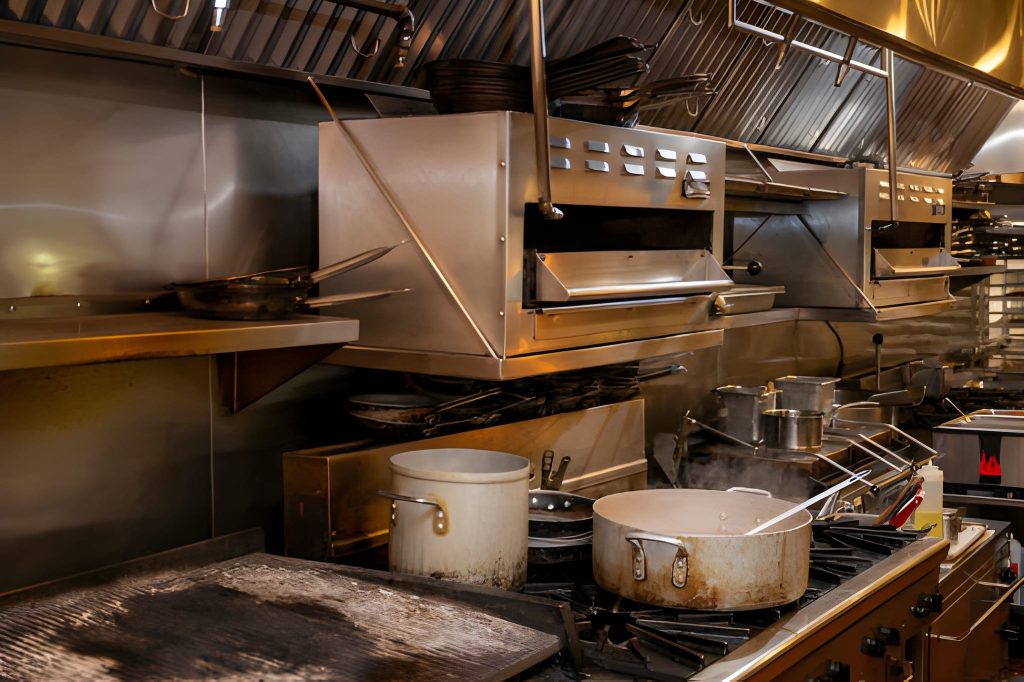
Fire safety regulations form the backbone of restaurant operations in Detroit, with specific emphasis on kitchen exhaust and hood systems. The Detroit Fire Code, based on NFPA 1 and NFPA 96 standards, establishes strict guidelines for commercial kitchen ventilation maintenance. Restaurant owners must schedule regular professional cleaning and inspections of their exhaust hood systems to prevent grease buildup and maintain compliance with local fire safety requirements.
Clean kitchen exhaust systems play a vital role in preventing restaurant fires and protecting both staff and patrons. Fire marshals conduct thorough inspections of commercial cooking operations, focusing on ventilation systems as key components of fire prevention. Regular maintenance not only ensures safety but also helps businesses avoid costly violations and potential closures.
Professional exhaust cleaning services help restaurant owners meet these essential fire code requirements while maintaining the highest safety standards. Proper documentation of cleaning schedules and maintenance records demonstrates commitment to compliance and creates a safer environment for everyone in the establishment.
Key Takeaways
- Regular professional cleaning of exhaust systems is mandatory under Detroit fire codes
- Fire marshals enforce NFPA 96 standards through routine inspections of ventilation systems
- Professional cleaning services ensure compliance and maintain documentation of all maintenance work
Detroit’s Restaurant Fire Codes: Essentials for Exhaust and Hood Cleaning
Detroit restaurants must adhere to strict fire safety regulations based on NFPA 96 standards and local amendments. These codes establish specific requirements for ventilation system maintenance and cleaning to prevent fire hazards in commercial kitchens.
Legal Requirements for Commercial Kitchen Ventilation
Commercial kitchen owners in Detroit must maintain their ventilation systems according to NFPA 96 guidelines, which became effective in April 2025 under Michigan state law.
The responsibility for system maintenance and cleanliness falls directly on restaurant owners and operators. They must ensure proper installation of hood systems, grease filters, and rooftop grease containment equipment.
Key compliance requirements:
- Professional installation of UL-listed exhaust equipment
- Properly sized and positioned hood systems
- Regular maintenance of grease removal devices
- Documentation of all cleaning and maintenance work
Fire Risk Reduction Through Regular Hood Cleaning
Grease accumulation poses the primary fire risk in commercial kitchen exhaust systems. Professional cleaning removes this combustible material from hoods, ducts, and fans.
Critical cleaning areas:
- Hood interior surfaces
- Grease filters and collection cups
- Exhaust duct systems
- Fan units and housings
Regular cleaning prevents grease fires and ensures proper ventilation system operation. Clean systems also maintain proper airflow, reducing the risk of smoke and heat buildup.
Inspection Schedules and Compliance Standards
Detroit fire marshals conduct regular inspections based on NFPA 96 guidelines to verify system cleanliness and maintenance.
Required inspection frequencies:
- Monthly: Light-volume cooking operations
- Quarterly: Moderate-volume operations
- Semi-annually: High-volume operations
- Annually: Solid fuel cooking operations
Documentation must include cleaning dates, service provider information, and any repairs made. Fire marshals can issue citations or shut down operations for non-compliance with cleaning standards.
Restaurants must keep detailed records of all inspections and cleaning services for at least three years.
The Role of Hood Safe LLC in Ensuring Code Compliance
Hood Safe LLC maintains strict NFPA 96 compliance while delivering specialized exhaust system cleaning services across Detroit’s commercial kitchens. Their certified technicians follow detailed protocols to prevent fire hazards and maintain health standards.
Professional Cleaning Procedures and Certification
Hood Safe’s technicians undergo rigorous training in commercial kitchen exhaust system maintenance. Each technician holds current certifications in NFPA 96 standards and local Detroit fire codes.
The cleaning process follows a systematic approach:
- Complete disassembly and inspection of hood components
- Pressure washing with specialized degreasers
- Mechanical scraping of stubborn grease deposits
- Thorough cleaning of ductwork and fans
- Detailed photo documentation
Every cleaning service includes a comprehensive inspection report and certification of completion for fire marshal records.
Customized Maintenance Plans for Detroit Restaurants
Hood Safe creates tailored cleaning schedules based on each restaurant’s specific cooking volume and type. High-volume establishments receive monthly services, while lighter-use facilities may qualify for quarterly maintenance.
The maintenance plans include:
- Regular system inspections
- Scheduled deep cleaning services
- Emergency response availability
- Digital documentation and reminders
Professional technicians assess grease accumulation levels during each visit to adjust cleaning frequencies as needed. A digital tracking system monitors compliance deadlines and automatically schedules required services.
